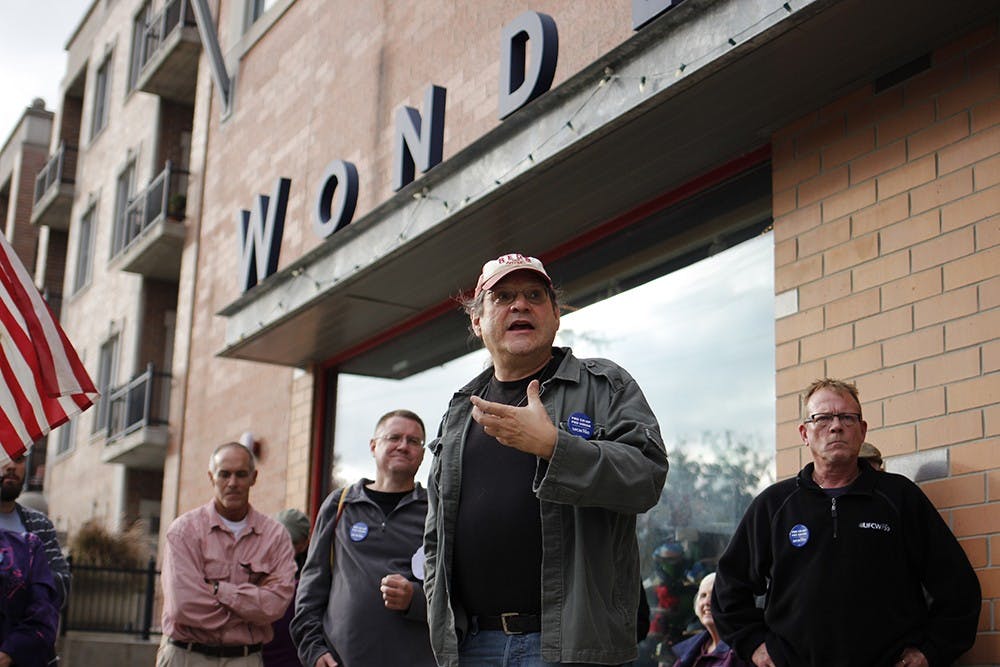If followed through, the neutrality agreement between the board of directors and the workers could lead to the unionization many of the workers have sought for more than a month.
George Huntington, the co-op’s general manager, addressed the union issue in his remarks, admitting that at times, cooperative values may have been brushed under the rug.
He said as a cooperative and a business, Bloomingfoods must balance its focus on economic development and the workers’ democratic rights.
“It’s an important issue, and one that will be resolved soon,” Huntington said. “We may have let the balance teeter in one direction, but we can fix this.”
Huntington also said he has been in discussions with other union-represented cooperatives and a former United Food and Commercial Workers representative to properly assess the situation with Bloomingfoods.
For many of the workers, union neutrality from the board seemed unlikely until today — especially considering the board’s past discussions with union-busting specialists.
“Our attorneys from Mallor Grodner sought specialized assistance from an attorney from the law firm Barnes and Thornburg due to his expertise in labor law and his immediate availability to provide a presentation to supervisory staff,” according to a Sept. 19 release from Bloomingfoods.
Tim Clougher, president of the board, said this statement may have led to the misconstrued belief of the workers that they were seeking to stifle the voice of the potential union.
“I liken it to getting a divorce lawyer if you’re going through a divorce,” he said. “We wanted to make sure the workers were able to unionize but do so in a way that follows the law.”
Huntington said the co-op is no longer in contact with the attorney.
Mounting pressure from two parties seeking different changes may have been a factor in the neutrality decision. On one side, the board was facing workers seeking different working conditions. On the other side, member-owners were seeking transparency from the board and general manager.
But while the parties may soon receive what they sought, not all of them are happy. Andy Marrs, a member-owner and employee of the co-op, said neutrality seemed like a position the board took on out of pressure, not good will.
“A lot of issues were not brought up tonight,” Marrs said. “It’s disrespectful to the workers that have been affected by those issues, and it would be a lot easier to trust the board and George (Huntington) if those issues were addressed.”
Marrs also mentioned that some of the stats Huntington brought up in his remarks were skewed, such as the employee statistics.
Wariness is also being expressed by the workers. While the board has announced its neutrality, it is only on principle.
This means the neutrality announcement isn’t official until a document is signed stating so, according to Scott Barnett, a representative with the UFCW Local 700, the organization seeking to represent the Bloomingfoods workers.
So while it is claiming it is neutral at this juncture, it could ultimately end up deciding not to sign the document, negating the board’s neutrality.
In the event that the document is signed, the co-op’s employees will be plunged into a campaign and elections process that will decide whether the workers would like to unionize. Then, collective bargaining can begin to negotiate wages, benefits and working conditions.
The fight for unionization began in August and started to gain momentum in September. For now, that battle may be coming to an end, but wariness is keeping the unionizers on their toes.
“The board is moving closer to their cooperative principles and taking a step in the right direction,” said Dakota Walker, a member-owner, employee and one of the few who brought the idea of unionization to the UFCW. “But it’s not over yet.”






